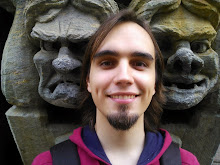I am in the process of re-watching a movie called Memento (2000). My dear friend reminded me of the existence of it. It is a movie by one of the most gifted directors of our time Christopher Nolan (who also created The Dark Knight which is simply a perfect film if you are in the right mode of consciousness). The protagonist of Memento, Leonard, is suffering from anterograde amnesia, a clinical condition that blocks mind/brain’s capacity to remember new phenomena. In order to survive in the world which is full of people who would like to take advantage of his condition Leonard constantly leaves himself notes to remind who he is, where he is, and what his goals are.
The feeling of watching this movie is so uncanny that I had to stop watching it. And when I went to bed this uncanny feeling didn’t disappear, insisted on it being followed and brought me back to my computer to write this down. To be straightforward, this uncanny feeling is that of the recognition that in some bigger sense Leonard’s condition reminds me of my own—and, perhaps, it appears familiar not only to me but also to other people.
I feel that in some way I live a similar life always leaving myself notes in attempt to re-mind myself who I truly am in the fullness of my being-in-the-world. I have this and that peak experience, I glance here and there on my true nature, I become one with something which is what I am, I become capable to hold it in the gesture of my meditative awareness for longer periods; and yet once in a while I slip into the darkness of forgetfulness. In a sense, this very blog is a note that I leave to myself to constantly remind myself of what I am—or at least of what it is worth living for and of what it is possible to choose as one’s own destiny.
In addition to becoming a person on the frontal egoic plane in the process of individual growth and development mediated to a great extent through socialization it seems that my life is about, first of all, reminding myself of something—of my Soul’s True Love if you let me put it that way—then remembering it and then knowing through embodying my True Self (and finally letting go of it and stepping into not-knowing). As long as I am locked within the cell of my mind which constantly chaotically twinkles and flows I have to re-mind myself of what I am and then to train my mind to remember. But eventually when the personal mind gets transcended but included, once one enters the narrow gate, a bigger entity emerges, the one that simply knows and feels and moves and speaks and sees. Here, life becomes quite easy: I simply smell my way further and operate on the skills my well-adapted personal ego has learnt through the years of learning. Sometimes I could recall to my presence some farther events and perspectives that I have once known somewhere else—and feel as if I am actually there—and yet I don’t need to rely that much on re-minding myself of all those limited details any longer—I let go.
Sometimes I can even forget what I said a minute or an hour ago and there is simply too much information in the world now for me to try to remind myself of all of it. When I open my email client and see all these different emails from different streams of life, different parts of the world, different projects, different ideas… they simply overwhelm if I attempt to remind myself of everything through my mind.
I don’t know where the need for re-minders would disappear. My friend Jim whose depth of mind fascinates me says the word money comes from the word warning or reminder. Will the times when we don’t have to re-mind ourselves come? How would it be if we simply… remember—for starters? All the beautiful churches, all the beautiful temples, all the beautiful pyramids, all the houses, all the cities, all the graves, all the monuments, all the books, all the photographs, all the paintings, etc.—are they here to simply re-mind us of something once in a while or can they act as catalyzing portals into remembering and eventually simply and profoundly non-forgettingly being and fulfilling one’s destiny on multiple planes of living. I don’t mind if it happens.
I am concluding with an entry from a dictionary on Plato’s works:
truth
The Greek word for truth, aletheia, incorporates the word for “forgetting”; a-letheia might be translated as “unforgetting” or “remembering.” This etymology is particularly significant in Plato’s epistemology, which maintains that true knowledge can be achieved only through anamnesis, the soul’s recollection of the Forms it has glimpsed during its circuit through heaven in metempsychosis. For Plato, knowledge of mere phenomena cannot attain the truth, as only the ideal Forms are truly real.




No comments:
Post a Comment